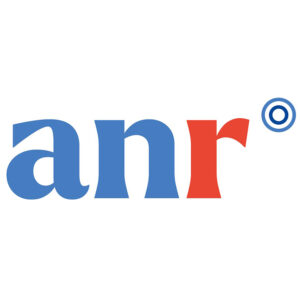Awareness week 2022: where is the fight against familial hypercholesterolemia?
Familial hypercholesterolemia (HF) is one of the most common genetic diseases in the world and in France, and it can cause neuro-cardiovascular complications (cerebrovascular accidents, acute coronary syndromes, etc.) in young adults, even children.
On the occasion of the awareness week against HF from September 19 to 25, 2022, the IHU ICAN takes stock of this frequent hereditary disease.
Familial hypercholesterolemia: a genetic disease that is too often underdiagnosed
Unlike “classic” hypercholesterolemia, which develops with age or poor diet, familial hypercholesterolemia is the only pathology where the child is born with a very high cholesterol level.
Unfortunately, too often under-diagnosed, this disease is nevertheless a real public health issue:
- Scientists estimate that 225,000 to 270,000 people are affected in France,
- With only 10% of adults and 5% of children diagnosed.
“This disease is a real paradox since it is easy to detect and treatments exist! Today, human tragedies could be avoided by early detection of children and young adults. ”says Lionel Ribes, President of ANHET (National Association of Familial Hypercholesterolemia and Lipoproteins), interviewed by the IHU ICAN as part of this awareness week.
Familial hypercholesterolemia: what are the risks?
This disease is the most common cardiovascular risk factor among hereditary genetic conditions. “Cardiovascular risk is multiplied by 13 in patients with familial hypercholesterolemia,” explains Philippe Lesnik, Research Director at UMRS 1166 (IHU ICAN).
Among these sufferers, some are affected by the rare form of familial hypercholesterolemia (homozygous): without screening and without treatment, there is a risk of mortality before the age of 20.
To prevent the disease, it is very important to look for abnormally high cholesterol levels in members of the same family, compared to the values usually encountered for age in the general population. “It is the non-sex chromosomes that carry the genes responsible for this hypercholesterolemia The child will therefore inheriting a dysfunctional copy from either its father or its mother. Overall, 50% of individuals in a family where one member is affected will inherit the disease.” explains Pr Alain Carrié, University Professor, Hospital Practitioner and Head of the Functional Unit for Genetics of Obesity and Dyslipidemia (Pitié-Salpêtrière Hospital).
What care pathway for patients?
A simple blood test can identify abnormal cholesterol levels.
The IHU ICAN experts have therefore set up a care pathway to improve the management of patients with familial hypercholesterolemia.
- As soon as there are warning signals and a suspicion of genetic disease following a blood test, the patient is generally referred by his attending physician or other specialists.
- He will benefit from a specialized consultation where genetic screening can be considered in order to search for gene mutations and identify dysfunction in the metabolism of LDL-cholesterol (bad cholesterol).
- In the event of a positive genetic screening, the patient is included in a specialized care course dedicated to the management of his pathology: annual specialist consultations, day hospitalization for non-invasive screening of vascular damage, etc.
Several types of treatment exist depending on the patient’s situation.” a Early detection and long-term treatment are the 2 fundamental elements that can allowliving with HF without suffering the consequences.” says Dr. Antonio Gallo, IHU ICAN, University Lecturer and Hospital Practitioner at the Lipidology and Cardiovascular Prevention Unit (Pitié-Salpêtrière Hospital).
“We know how to detect and treat this pathology but, unlike other European countries such as the Netherlands or Slovenia, we have not put in place strong preventive measures!“ explains Lionel Ribes, President of the ANHET association. Discover the IHU ICAN treatment pathTestimony of a patient from the Hemobiotherapy and LDL-apheresis unit (Pitié-Salpêtrière Hospital)
“I have familial hypercholesterolemia which was detected very early. When I was a child I had drug treatments, then around the age of 16 I started machine treatment (LDL-apheresis). Basically, we are filtered from the blood of bad cholesterol. The treatment lasts 2 hours, every 15 days, and I tolerate it very well in terms of my health. No contraindications or side effects, just a little fatigue the same day, then the next morning, I start my life again normally.”
How to improve disease prevention?
“There is an urgent need to set up early and generalized screening for familial hypercholesterolemia in the French population in order to prevent young affected patients from developing neuro-cardiovascular complications. (…) The goal is not to scare but to raise awareness that familial hypercholesterolemia is a real public health issue. » (Lionel Ribes) Untreated or poorly treated familial hypercholesterolemia risks leading the patient to progressive atherosclerosis which can manifest itself in serious neuro-cardiovascular complications, or in early death.
The IHU ICAN teams work daily to fight against cardiometabolic diseases, the leading cause of chronic diseases and death in France and around the world. Your donations are precious for advancing medical research and improving the care pathway for patients. I make a donation to support medical research“My dearest wish is that we can screen as many subjects as possible, as young as possible and as soon as possible, so that they can benefit from appropriate care so that their increased vascular risk is as close as possible to the general population.” (Pr Alain Carrié) Find out moreWho is ANHET? Since the creation of the association in 2013, theANHET represents the patients withfamilial hypercholesterolemia. With a scientific council (whose members are recognized for their expertise), itit communicates with the medical world, the general public, health authorities and the political world to inform of the seriousness of the repercussions on health. The association warns also the health and political authorities to obtain commitments for screening and treatment procedures.







